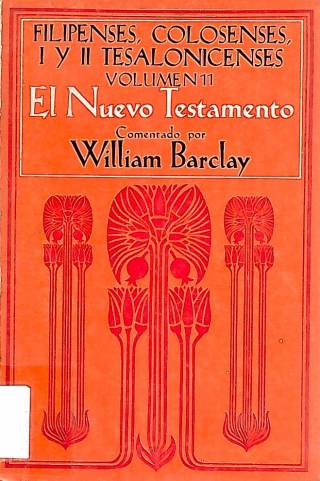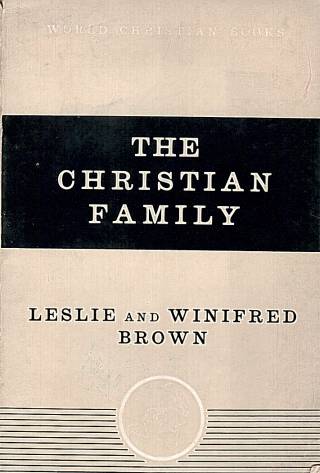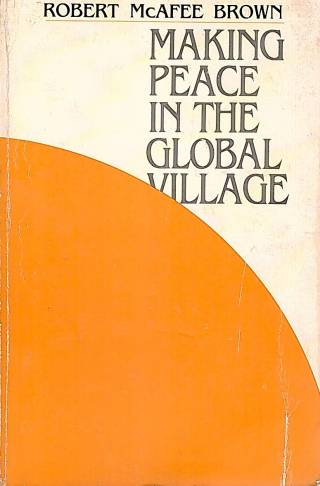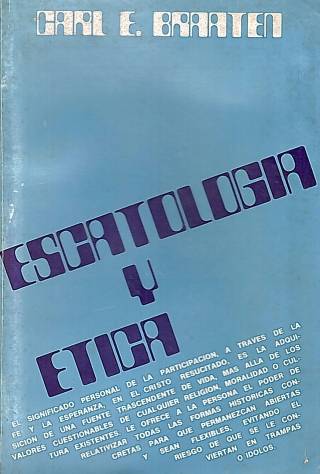Filipenses, Colosenses y I-II Tesalonicenses / Barclay, William - Donación Ana Rita, Carlos, Rubén Pagura Alegría
Este volumen contiene notas de las Epístolas de Pablo a los Filipenses, Colosenses y Tesalonicenses. Cada una de estas Cartas tiene su propia y especial importancia. La Epistola a los Filipenses fue llamada "la Epístola de las enseñanzas excelentes". No es una Carta difícil de entender y para muchos es la Carta más encantadora y atractiva que Pablo jamás escribió. La epístola a los Colosenses es al mismo tiempo una de las más eminentes y entre las más difíciles que Pablo tratara. En ninguna parte alcanza Pablo tal altura en sus escritos sobre la persona y la obra de Jesús. Aquí está el pensamiento paulino acerca de Jesús en su grandeza mayor. Las Primera y Segunda Epístolas a los Tesalonienses son, con la posible excepción de la Epístola a los Gálatas, las primeras Cartas de Pablo. Ellas son de especial importancia mostrándolo enseñando a sus primeras iglesias, y en particular ellas contienen algunas de las más precisas enseñanzas de la Segnda Vivienda. El que estudie estas tres Cartas verá el pensamiento de Pablo en varios de sus más altos alcances y aspectos. Los comentaristas han estado muy acertados en la interpretación de todas estas cartas.
U13455
The christian family / Brown, Leslie - Donación Ana Rita, Carlos, Rubén Pagura Alegría
Many books have been written in recent years on the Christian Family, some of them excellent; but many of them turn out to be books on the family in general, with some good Christian points thrown in. In this book, the Bishop of Uganda and Mrs. Brown have tried to ask and to answer one question: What is it that makes a family Christian, and in what way does a Christian family differ from every other kind of family? Their study carries them far and wide over the world; but whatever the background and situation, they find that there are certein principles that must always and everywhere be operative. Every realtionship-husband to wife, parents to children, children to other children- must come under Christ's law of truth and love. Only a family of which this is true can serve as "the Church wich is in thy house".
U13468
Making peace in the global village / Brown, Robert McAfee - Donación Ana Rita, Carlos, Rubén Pagura Alegría
"We need: writes Brown." to reflect on some new ways of making peace, since we haven't been notably successful in our attempts to do so in the past. What this small book tries to do is to provide a perspective for peacemaking, though not a program. It examines how we have to look at our world -and ourselves- if we are to be peacemakers. When we have done some grappling with that, we will be in a better position to work on programs, wich will become the order of the day as soon as the book is closed. Such a perspective won't come out of the blue, or out of heaven, or out of books, or out of abstract reflection. It will only come out of looking very openly and honestly at the world we are in and what we are doing within it.
U13467
Escatología y ética / Braaten, Carl E. - Donación Ana Rita, Carlos, Rubén Pagura Alegría
Bajo los embates del racionalismo y el liberalismo, la Iglesia ha perdido, en muchos de sus sectores, una visión clara de la dimensión escatológica del Evangelio. Para Braaten, que es profesor en la prestigiosa Escuela Luterana de Teología de Chicago y se ha hecho conocer ampliamente por sus obras de gran aliento, escatología es sinónimo de esperanza. Hablar de escatología equivale a proponer el futuro que anhelamos. Incorporar la escatología al mensaje que la Iglesia vive y predica es participar plenamente, como hombres y mujeres responsables, en la construcción del mejor mundo posible.
U13466





